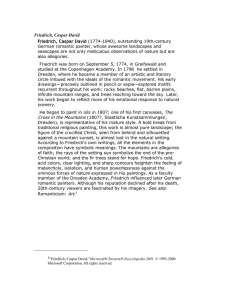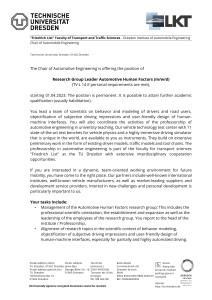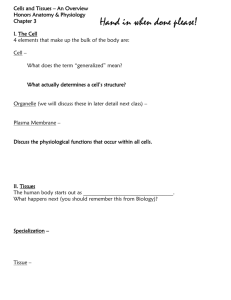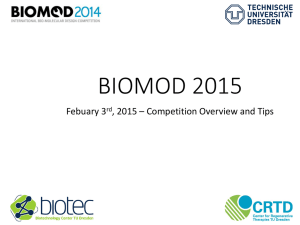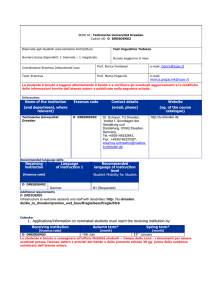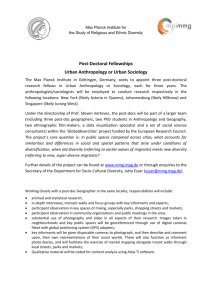postdoc_openings_biological_algorithms
advertisement
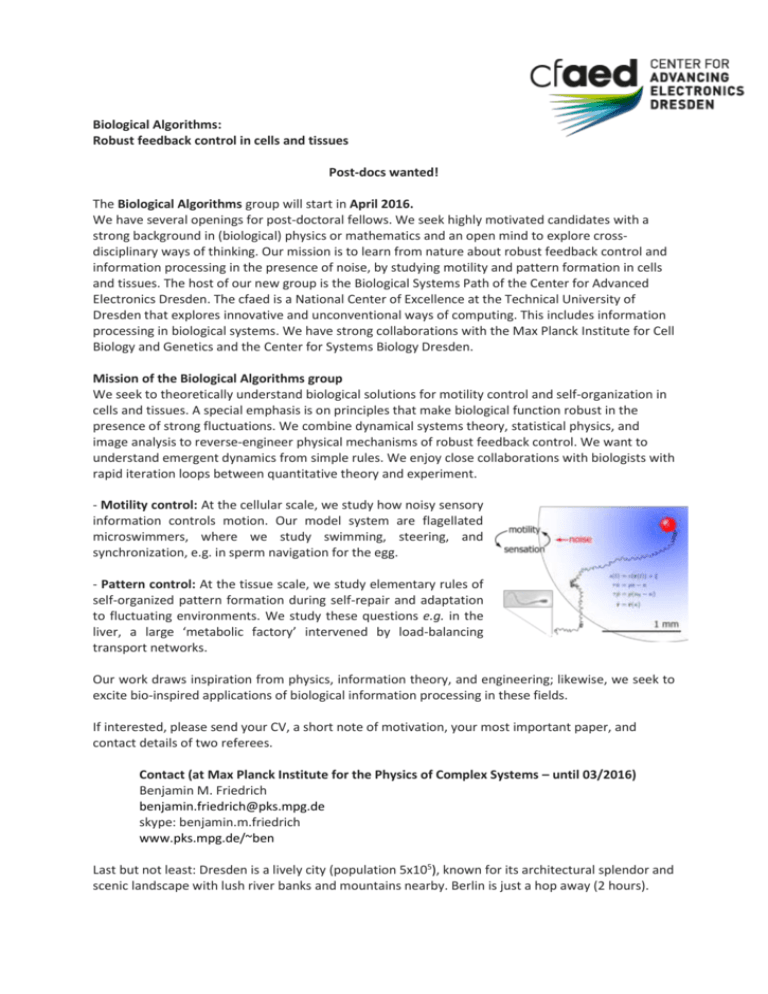
Biological Algorithms: Robust feedback control in cells and tissues Post-docs wanted! The Biological Algorithms group will start in April 2016. We have several openings for post-doctoral fellows. We seek highly motivated candidates with a strong background in (biological) physics or mathematics and an open mind to explore crossdisciplinary ways of thinking. Our mission is to learn from nature about robust feedback control and information processing in the presence of noise, by studying motility and pattern formation in cells and tissues. The host of our new group is the Biological Systems Path of the Center for Advanced Electronics Dresden. The cfaed is a National Center of Excellence at the Technical University of Dresden that explores innovative and unconventional ways of computing. This includes information processing in biological systems. We have strong collaborations with the Max Planck Institute for Cell Biology and Genetics and the Center for Systems Biology Dresden. Mission of the Biological Algorithms group We seek to theoretically understand biological solutions for motility control and self-organization in cells and tissues. A special emphasis is on principles that make biological function robust in the presence of strong fluctuations. We combine dynamical systems theory, statistical physics, and image analysis to reverse-engineer physical mechanisms of robust feedback control. We want to understand emergent dynamics from simple rules. We enjoy close collaborations with biologists with rapid iteration loops between quantitative theory and experiment. - Motility control: At the cellular scale, we study how noisy sensory information controls motion. Our model system are flagellated microswimmers, where we study swimming, steering, and synchronization, e.g. in sperm navigation for the egg. - Pattern control: At the tissue scale, we study elementary rules of self-organized pattern formation during self-repair and adaptation to fluctuating environments. We study these questions e.g. in the liver, a large ‘metabolic factory’ intervened by load-balancing transport networks. Our work draws inspiration from physics, information theory, and engineering; likewise, we seek to excite bio-inspired applications of biological information processing in these fields. If interested, please send your CV, a short note of motivation, your most important paper, and contact details of two referees. Contact (at Max Planck Institute for the Physics of Complex Systems – until 03/2016) Benjamin M. Friedrich benjamin.friedrich@pks.mpg.de skype: benjamin.m.friedrich www.pks.mpg.de/~ben Last but not least: Dresden is a lively city (population 5x105), known for its architectural splendor and scenic landscape with lush river banks and mountains nearby. Berlin is just a hop away (2 hours).
